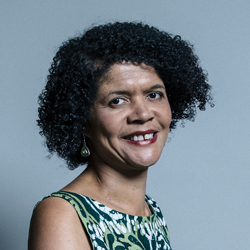
Chi Onwurah MP
Shadow Digital, Science and Technology Minister, Newcastle upon Tyne Central
I often tell people that Parliament is the most diverse environment I’ve ever worked in. That surprises people – our representative body is not known for its representativeness – until I tell them I worked as an engineer for two decades before entering Parliament, then it makes sense.
As an engineer, I was so often the only black person in the room, the only woman in the room, the only working class person in the room, and the only Northerner in the room. For those who have not experienced being in my position, I think it can be hard to understand just how lonely and tiring being a minority can be. And just how much it undermines diversity of thought, potential and innovation.
The coronavirus crisis has shown us that science plays a vital part in all of our lives and we need the people who work and engage in science to be representative of the whole of society.
Science’s promise is to make the world look better – for everyone
Having science as something that happens ‘over there’ in ivory towers, among a narrow demographic prevents us from delivering on science’s promise – to make the world work better, for everyone. So we need to be very clear that diversity is not an optional add-on, it is an economic imperative.
Diversity and inclusion need to be at the heart of our STEM education, employment practices, policy development and digital economy if we are to thrive.
Innovation is what happens when people with different ideas, from different disciplines and backgrounds come together to create or discover something new and valuable. We are losing out on our scientific and therefore economic potential by limiting those who access it. And we are also driving inequality. STEM jobs pay better and will drive job creation over the next few years as we build back from the pandemic and face climate change and the fourth industrial revolution. And they are such rewarding and fulfilling careers. It is essential that they are open to everyone, and benefit from the talents of everyone.
There are many reasons that change is slow, but we must keep working to progress
When I entered Imperial College in 1984, to study electrical engineering, only 12% of my fellow students were women. I still remember my first day at Imperial College, sitting in an overwhelmingly white, male and privately-educated lecture theatre to learn ‘our’ college song. Thirty-six years later, and the figures on gender have barely changed despite more ‘Women in STEM’ initiatives than I can count. BAME students constitute fewer than 10% of STEM students at Russell Group universities and only 7.8% of engineering professionals.
The lack of change reflects the fact that it is challenging, and hard. It’s not down to one factor or barrier. Whether its pink toys or prejudice in peer reviews, lack of flexible working or short-term research contracts, many cultural, economic and institutional factors play a part. But I do know that it can change. I know that there are organisations who do succeed in achieving both diversity and inclusion. They tend to be organisations that combine leadership with evidence-based policies and openness to criticism and change.
Diversity and inclusion need to be at the heart of our STEM education, employment practices, policy development and digital economy if we are to thrive. Representation matters, because everyone deserves these opportunities, and because the people who design our world should understand the full range of humanity. The experiences, hopes, passions and needs of us all must drive our scientific achievement.

